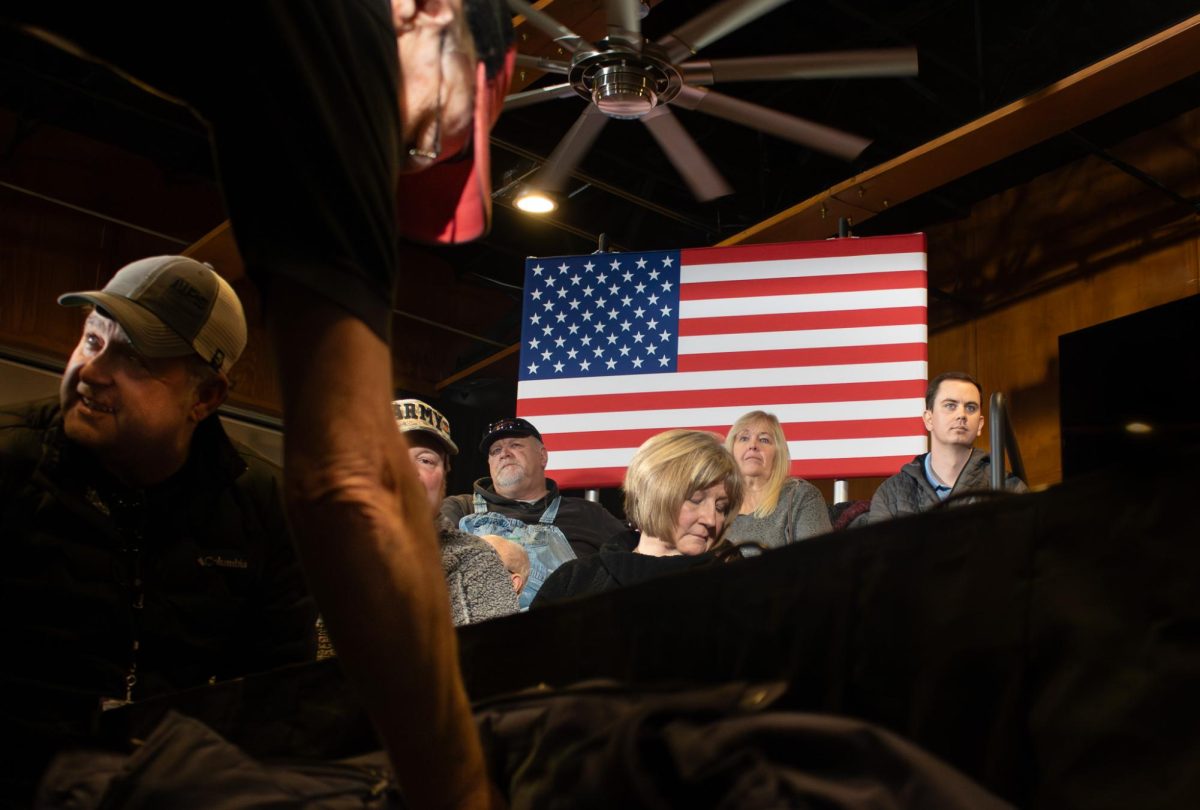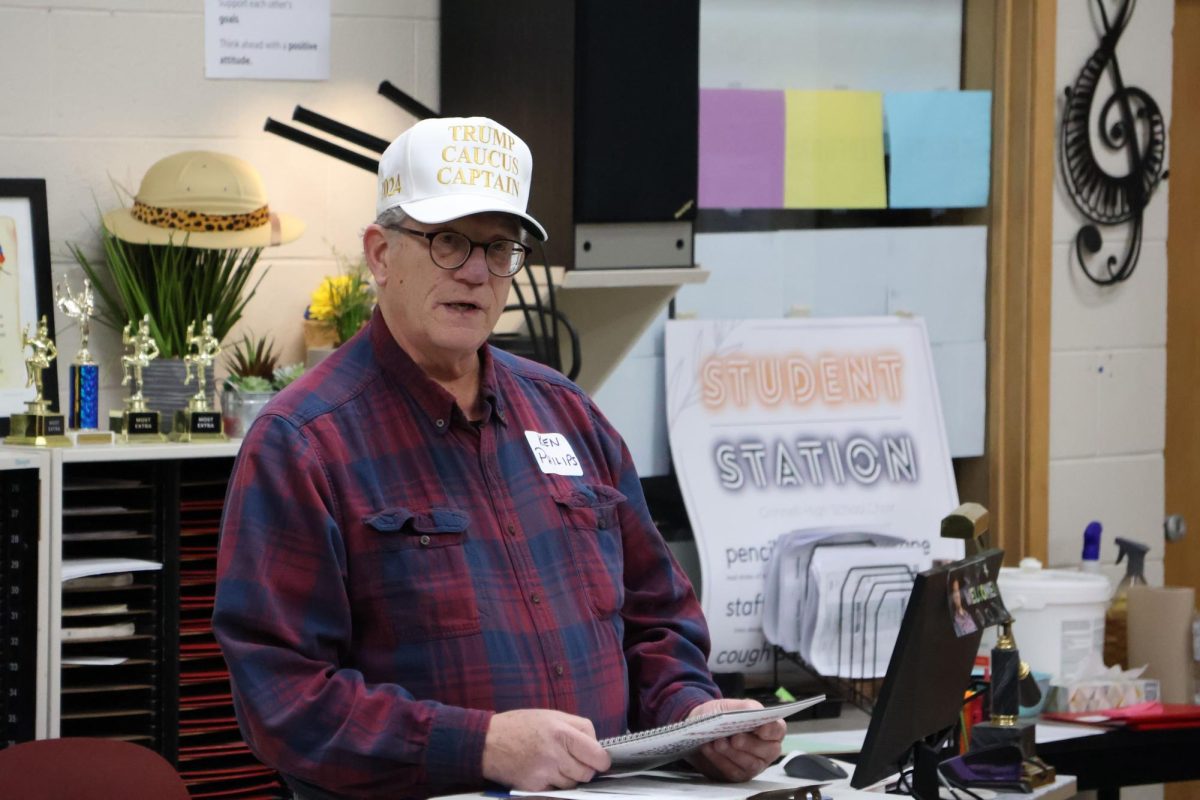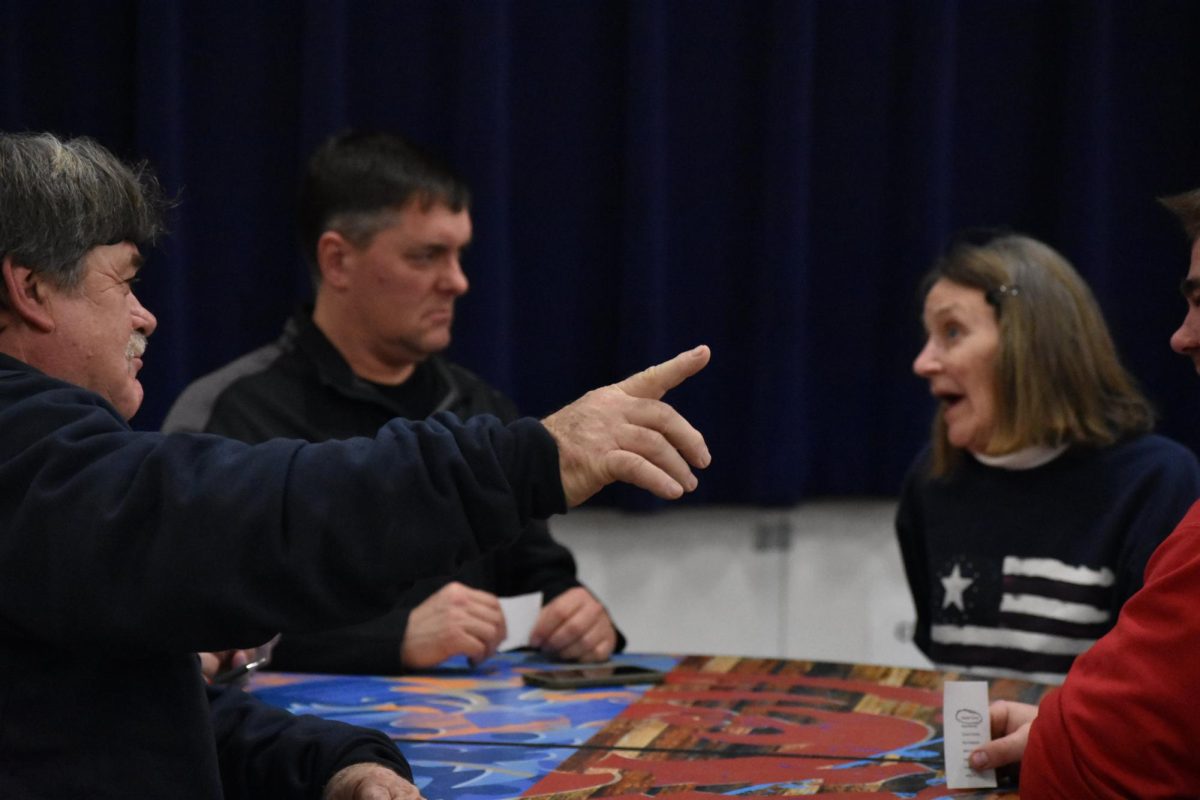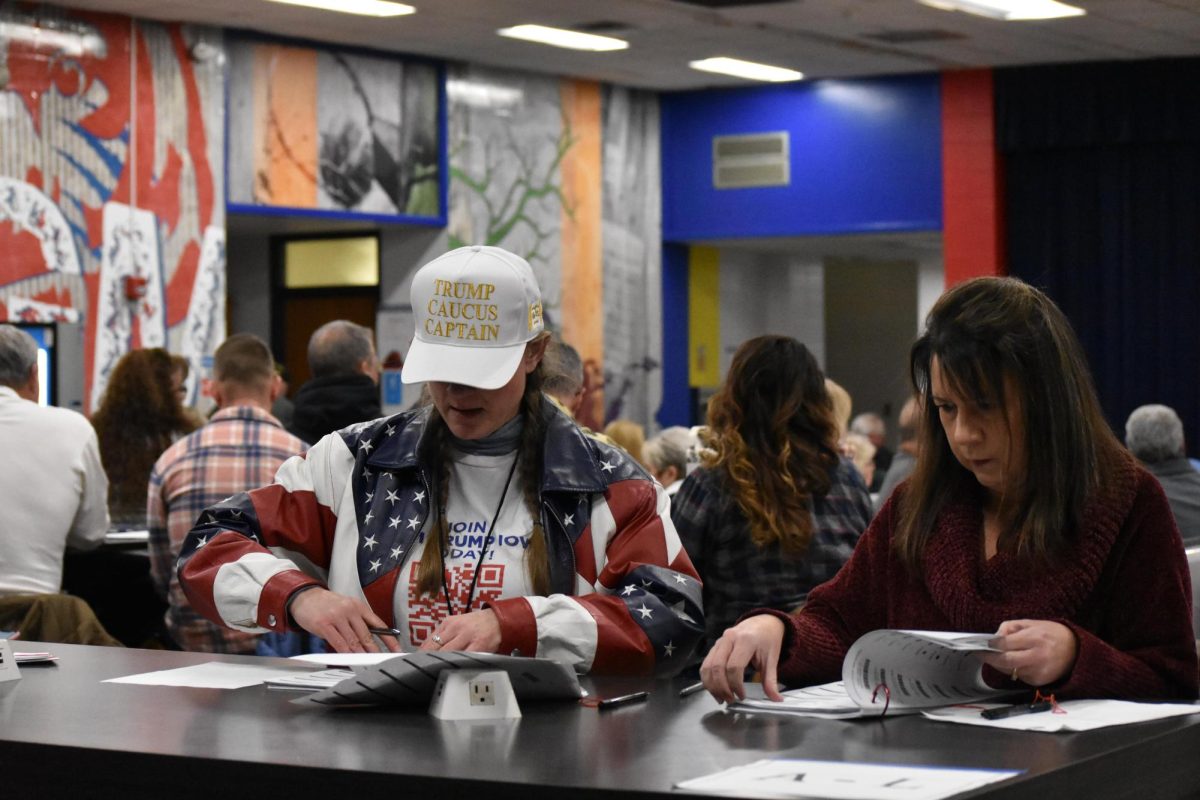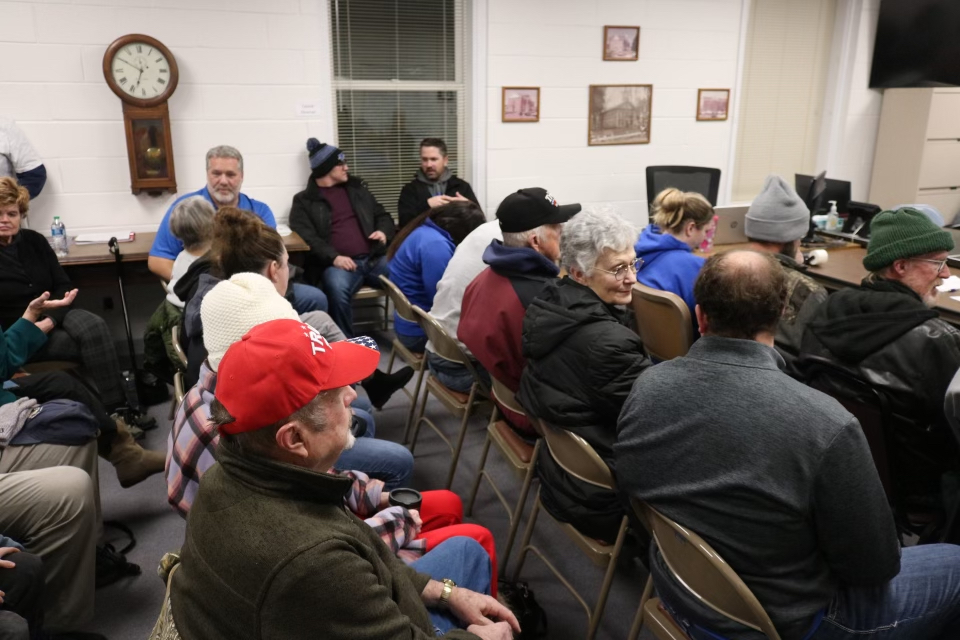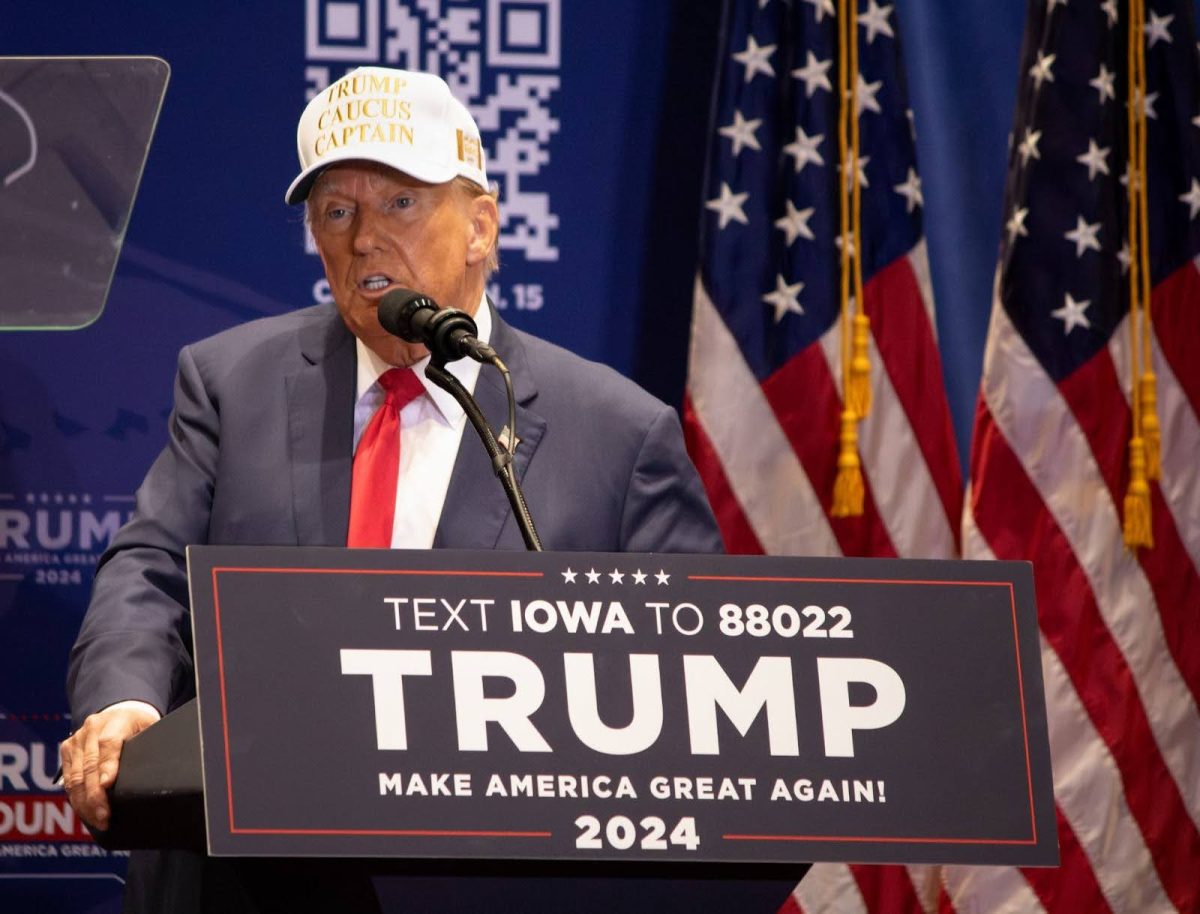The Iowa caucuses are on Monday, Jan. 15, marking the beginning of the Republican presidential nomination process. With former President Donald Trump still leading in the polls despite numerous criminal charges against him, the Iowa caucuses will test whether Nikki Haley, Ron DeSantis or Vivek Ramaswamy have the support necessary to shock Trump’s campaign.
What are the Iowa caucuses?
The Iowa caucuses began in the 1970s and have served as the first ballots cast in the presidential election process ever since. Historically, both Republicans and Democrats have begun their primary races in Iowa. However, the Democratic Party will begin its nomination process in South Carolina, citing concerns over the racial homogeneity in Iowa. Additionally, they will not be hosting an in-person event, opting instead for mail-in ballots. This means that only the Republican Party will be holding in-person caucuses in Iowa this year.
There are two main goals of the Republican caucuses. The primary goal is signaling to the rest of the country whom the majority of Republican caucus-goers prefer as the Republican nominee. The second is electing delegates to attend county conventions — the first step in the process of electing delegates to attend the Republican National Convention in Milwaukee this summer, where the nominee is officially chosen.
How do they work?
Caucuses take place at the same time across the state of Iowa. The caucus begins once participants have elected a chair and secretary to lead the meeting. The chair then invites someone to speak on behalf of each presidential candidate in order to convince the attendees to vote for the candidate they represent. Typically, the campaigns have identified a speaker to speak in their precinct on their behalf prior to the caucus. Sometimes, the candidates may even caucus themselves.
After everyone speaks, attendees cast secret ballots. Some ballots have the official candidates printed out on them with space for write-ins, but typically attendees simply write the name of their preferred candidates on a blank slip of paper.
Once everyone has voted, the votes are recorded and the results must be signed off on by the caucus chair and secretary. Representatives from each campaign are invited to watch the process. Then, the votes are sent to the state party to be shared.
There are a few key differences between caucuses and conventional primaries. For states that hold primaries, voters have all day to go to the polls and cast their vote, with additional options to vote early or by mail. This is not true with caucuses as they all happen at the same time and on the same day, with attendees required to attend in person. The other key difference is that primaries are typically run by the state while caucuses are run by the parties.
How can you participate?
Caucuses will be held at 1,657 precincts across Iowa in designated community centers, churches, schools and other community buildings. You can find your caucus location here.
All caucuses begin at 7 p.m., with most opening their doors at 5 p.m.
In order to caucus, you must be eligible to vote in the state of Iowa, be 18 years old by Nov. 5, 2024 and be registered as a Republican. You must bring a valid form of ID — passport, driver’s license, voter identification card or tribal ID. If you plan to register to vote on caucus night, bring a valid ID and proof of residency — signed lease, utility bill, paycheck, etc.
Why do they matter?
The Iowa caucuses are viewed as the first real insight into the level of support for each candidate. Many candidates have been campaigning for months, and this is their chance to see how effective their efforts have been.
Despite Iowa only holding 1.6% of the total delegates, it has an impactful role in the election because it narrows the field and influences subsequent voter preferences. If a candidate performs poorly in the Iowa caucuses, they may choose to drop out of the race.
Alternatively, a win may propel a candidate to greater success in the following primaries and vastly increase media attention. Jimmy Carter demonstrated this during his 1976 campaign, moving from little visibility to winning the nomination because of the resources and effort he dedicated to Iowa.
However, Iowa has a poor record when it comes to correctly predicting election outcomes. In 2016, for example, Trump came second to Texas Senator Ted Cruz in Iowa before winning the nomination. In fact, George W. Bush was the last non-incumbent Republican candidate to win both Iowa and the nomination in 2000. This inconsistency is likely due to the demographic differences between Iowa and the rest of the United States.
As of 2020, 85% of Iowans are white, compared to 60.4% nationwide. This could lead to issues as it is difficult to gauge nationwide results in a state that does not proportionally represent the general population of the U.S. In this election, it remains to be seen if Iowa will play a key role in choosing the Republican nominee.
The Scarlet and Black will be providing live coverage on our social media platforms on Caucus Night.


















































